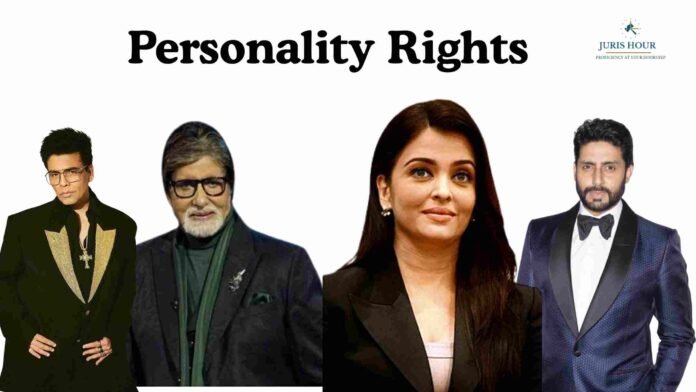Until recently, the notion that a celebrity’s name, voice, style, or even digital likeness required legal protection seemed almost unimaginable. However, a rising tide of lawsuits filed by prominent film personalities—including Amitabh Bachchan, Anil Kapoor, Jackie Shroff, Aishwarya Rai Bachchan, Abhishek Bachchan, Karan Johar, and Nagarjuna—signals a paradigm shift in legal thought.
The Delhi High Court has increasingly recognized the enforcement of personality rights, underscoring identity as a critical and valuable form of intellectual property in the digital and AI-driven landscape.
The Growing Importance of Personality Rights
With generative artificial intelligence (AI) and deepfake technologies proliferating, the risk of unauthorized use of celebrity personas has sharply increased. Stars are now moving to courts to safeguard their reputation, likeness, and commercial value against exploitation. Legal experts highlight that these cases are not limited to protecting stardom but also aim to set judicial precedent in recognizing identity as a distinct asset.
Justice Prathiba Singh of the Delhi High Court recently directed the government to explore a framework to curb the misuse of celebrity images and voices online. More than 100 Bollywood and regional stars have since sought judicial protection to prevent the unauthorized use of their identities for advertisements, endorsements, or digital content without consent.
Legal Foundations of Personality Rights in India
Currently, there is no dedicated legislation exclusively dealing with personality rights in India. Instead, courts rely on a mix of constitutional provisions, statutory laws, and common law principles.
- Constitutional Basis: Protection derives primarily from Article 19(1)(a) (freedom of speech and expression) balanced against Article 21 (right to privacy and dignity).
- Statutory Laws: Provisions under the Copyright Act, 1957, and the Trade Marks Act, 1999, extend partial safeguards by preventing misuse of artistic works, names, or logos. Section 38 of the Copyright Act recognizes performers’ rights, including the ability to control use of their performances and seek damages for misuse.
- Common Law: Courts also rely on principles of passing off and unfair competition to address cases involving misappropriation of celebrity identity.
Judicial Approach and Notable Cases
The Delhi High Court has played a pioneering role in shaping this jurisprudence.
- 2003: In ICC Development (International) Ltd. v. Arvee Enterprises, the court ruled that personality rights apply exclusively to identifiable living individuals.
- 2004: In DM Entertainment v. Baby Gift House, singer Daler Mehndi successfully restrained unauthorized commercial use of his likeness.
- 2011: In Anil Kapoor v. Simply Life India, the court recognized Bollywood actors’ rights against misuse of their images.
- Recent Developments: Courts have issued injunctions preventing misuse of actors’ voices and faces in AI-generated content, warning that digital manipulation without consent undermines privacy and reputation.
The Global Context
Unlike India, several countries already have codified frameworks to deal with personality rights:
- United States: Protects publicity rights through a mix of state statutes and common law, giving celebrities strong recourse against unauthorized commercial exploitation.
- European Union: Recognizes personality rights under privacy and data protection regimes, particularly through the General Data Protection Regulation (GDPR).
- Germany & France: Explicitly safeguard image, likeness, and personal dignity under constitutional and civil laws.
Legal analysts note that India lags behind in establishing a comprehensive statute, even though cases are multiplying with AI misuse and digital impersonation.
Why This Matters
As AI deepfakes, spoof ads, and manipulated videos flood online platforms, celebrities argue that unauthorized use of their persona misleads the public, dilutes their brand, and violates their dignity. With growing awareness, courts are increasingly inclined to issue swift injunctions and recognize identity as a form of intellectual property deserving robust protection.
“Personality rights are not just about stardom—they’re about dignity, privacy, and preventing misrepresentation in an AI-dominated environment,” observed legal experts following these cases.

